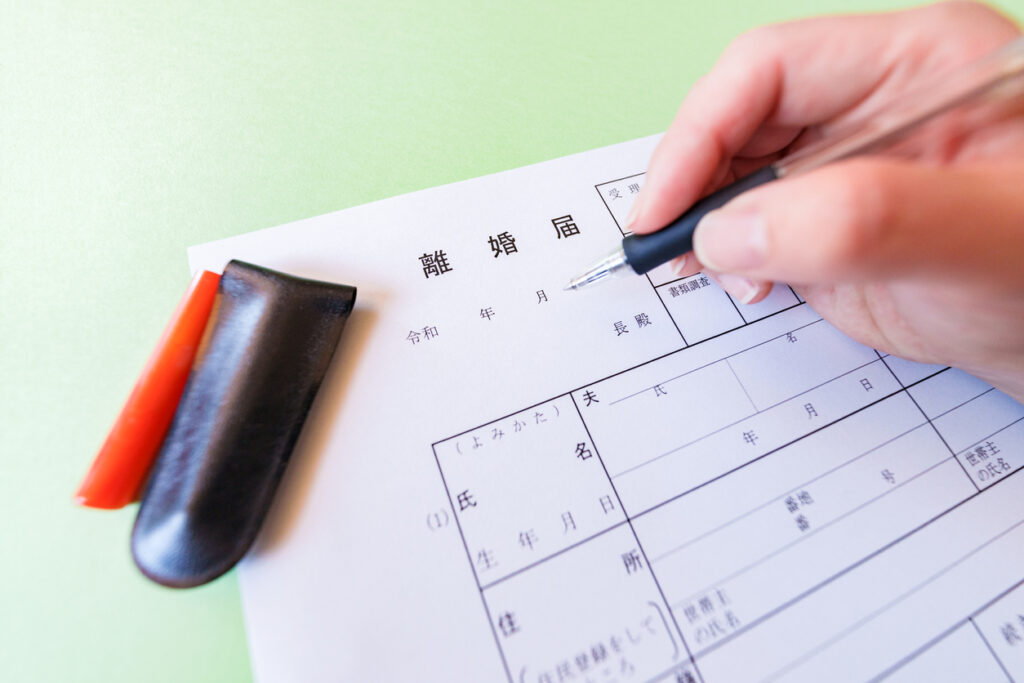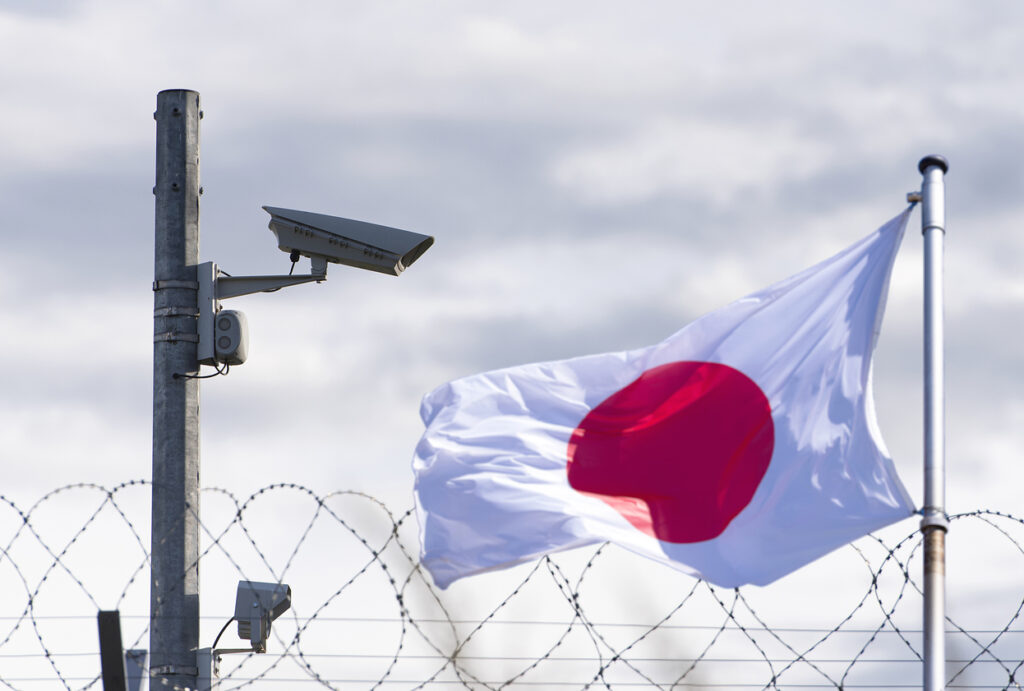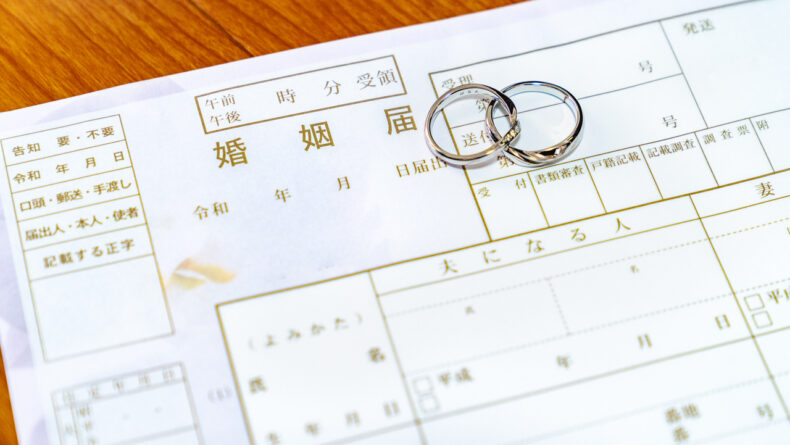Divorce in Japan: A Savvy Tokyo Guide
When It's Time to Untangle the Knot
Your step-by-step guide to getting divorced in Japan.
When a marriage is over, whether you live in your home country or in Japan, divorce is the only option. But how do you go about getting one? What steps are there? Where do you even start? Hopefully, this Savvy Tokyo guide to divorce in Japan will make the process somewhat easier for you.
So You’re Ready To Get Divorced
 © Photo by iStock: takasuu
© Photo by iStock: takasuuDivorce is a fact of life, like it or not. Just as there are myriad reasons to get married to someone, there are just as many reasons to end it. Whatever your or your partner’s reason may be, you’ll want to go through the process as thoroughly as possible to minimize any further complications.
Who is getting divorced?
If you are both foreign nationals, you will need to consult with your individual embassy or embassies as well as your local ward office to learn the full procedure for a divorce. It varies greatly by country and can require some degree of legal assistance.
The following information is based on a marriage between a Japanese person and a foreign national.
What are your options? How do they work?
 © Photo by iStock: yamasan
© Photo by iStock: yamasanThere are four types of divorce in Japan. For more information on the Japanese family court system and helpful FAQs, check out this link.
1. Divorce by Agreement (協議離婚 Kyogi Rikon)
Over 90% of divorces in Japan are settled via agreement. So long as a couple can agree to divorce as well as on the division of property, child custody, alimony/support, and so on, the couple doesn’t have to go through the family court or even have divorce lawyers involved. This is the most straightforward, “least messy” option.
How? Both partners fill out and submit a designated divorce form (離婚届 rikon todoke) at their local ward office. Both must sign and seal the form for it to be official. Witnesses will also be required to sign the paperwork before it is submitted. Technically both partners do not need to be present to submit the form so long as it’s been signed. Please note that not all countries recognize divorce by agreement. Consult with your embassy/consulate beforehand to ensure you are legally divorced.
2. Divorce by Mediation (調停離婚 Chotei Rikon)
If both partners cannot come to an agreement, can no longer communicate (calmly/rationally) or the cause of the divorce is not legally recognized (based on the Japanese Civil Code; irreconcilable differences, for example), you and your partner will need to speak with family/divorce lawyers.
How? You will need to consult with a divorce lawyer, ideally one who speaks your native language. A quick Google search can bring up several suitable law firms. Asking at your ward office can also be helpful. Some have mediation services on hand, which may mean spending less money to obtain a divorce.
Once you and your partner and lawyers have discussed the divorce circumstances and reached a decision, the decision will be officially reported in a mediation record (which is as enforceable as a court judgment). Then you have 10 days to file the rikon todoke along with the divorce mediation documents with your ward office.
3. Divorce by Family Court Decision (審判離婚 Shinpan Rikon)
One of the less common types of divorce in Japan is divorce by family court ruling. This occurs when the couple agrees to a divorce but cannot agree on the conditions of the divorce. For example, child custody matters, division of property, etc.
How? Both parties must get their divorce lawyers and take the matter before a Japanese family/divorce court. In this type of divorce, the decisions are left to the court itself to decide and are legally binding. Both parties can, of course, object to decisions within two weeks of them being made. This system is the most similar to a North American style divorce.
4. Divorce by Litigation (裁判離婚 Saiban Rikon)
Similar to a family court divorce, divorce by litigation involves having a legal reason to divorce your partner. It is typically used when one partner wishes to divorce, but the other doesn’t. Or if the divorce conditions are contentious.
How? To qualify for divorce by litigation, your situation must fall within the following conditions of Article 770.1 of the Japanese Civil Code:
- Infidelity of a spouse
- Malicious abandonment by a spouse
- Uncertainty as to whether a spouse is alive or not (for more than three years)
- Severe mental illness of a spouse with no possibility for reasonable recovery
- Grave grounds in which the continuation of marriage is unlikely (domestic violence, substance abuse, et cetera)
You will need to show proof/have evidence of any infidelity, abuse or documentation to support the mental health diagnosis of your partner in order to proceed with your litigation. Any and all paperwork may be handled by your lawyer. However, this may depend on the circumstances or ultimate decision made after the divorce proceedings.
What do you need to get a divorce in Japan?
 © Photo by iStock: show999
© Photo by iStock: show999First, you must determine whether a divorce by agreement is possible, as it is the least labor-intensive option. Getting divorced by agreement can be comparatively straightforward, especially if you’ve been married for a relatively short period of time and don’t:
- Own a home or vehicle
- Have any children
- Have issues with dividing property (furniture, household items, et cetera)
- Have issues with dividing shared bank accounts/finances (credit cards)
If you and your partner are able to reach a divorce by agreement, you will only need to present the fully filled-out designated divorce form (離婚届 rikon todoke) to your ward office and have it approved. This process is free, but you will be charged ¥300-¥350 per copy of the divorce certificate. Once approved, you are legally divorced and may move on with your life.
What if you can’t come to an agreement?
For couples that cannot agree or those with minor children, speaking with your embassy and a divorce lawyer is for your own protection. There are a number of matters to consider that may not be immediately clear. For example, if you have been a stay-at-home partner, you may be eligible for part of your partner’s pension fund. However, this depends on the length of your marriage and your partner’s financial contributions.
Under Japanese law, if a spouse is directly responsible for a divorce (infidelity, abuse), consolation money may be paid to the wronged individual. The maximum amount of compensation can vary widely but may be a lump sum payment rather than a monthly one, again a matter that a divorce lawyer will have more experience with.
Japanese civil law does not address parental rights, visitation rights or child support issues. Joint custody is not recognized either. Even if a couple lives abroad, if the Japanese partner returns to Japan and seeks a divorce here, and if children are involved, Japanese law will be applied to the case. There are also numerous international cases of Japanese parents abducting their children and bringing them back to Japan to raise them. If you have minor children and are thinking of divorcing in Japan or overseas, speak with a qualified lawyer as soon as possible.
You can also talk to the staff at your local ward office or check what services are available in your area via Legal Mall. This Japanese law service provides free consultations and hosts articles on issues such as international divorce.
How do I change my name after a divorce in Japan?
 © Photo by iStock: golfcphoto
© Photo by iStock: golfcphotoIf you are a foreign national that was married to a Japanese national you do not have to do anything. Japanese courts cannot change the names of non-Japanese citizens regardless of marital status. If however, you have become a Japanese citizen, then you will need to follow the change of name procedures as outlined by your local ward office. These may or may not be available in other languages.
However, if you have legally changed your name in your home country, you will need to follow any change of name/identity procedures in accordance with their rules and regulations.
If you have been using your married name as a registered alias (通称名; 通名, tsushomei; tsumei) instead of your maiden name for any services or have any seals (印鑑 inkan) in your married name, you will need to change these as well. Unfortunately, and depending on the service, this may take some time to change or be impossible to register until a specific time post-divorce. You can also apply at your ward office to have a registered alias removed. However, this, again, will take some time and may not be immediately applicable.
What about my visa status?
 © Photo by iStock: AlxeyPnferov
© Photo by iStock: AlxeyPnferovIf you are currently in Japan on a spouse visa/status of residence, then you must report your finalized divorce to your nearest Immigration office within two weeks. You must fill out a Notification of Relationship with Spouse form (either by hand or via the Ministry of Justice website).
Immigration will revoke your visa status within six months of your divorce unless you are a permanent resident of Japan. To avoid potential deportation, you will need to file a petition for a change of residence status form during this six-month period. If you are employed full-time, your employer may be able to provide you with a sponsored work visa, or you may need to change your work type/contract or even job.
Another option is to change your spousal visa to a Long-Term Resident visa if you have lived in Japan for over five years and meet other requirements set out by Immigration. This may also be possible if you have a child of Japanese nationality that you are raising in Japan. Please note that in order to count for this visa type, the child must be a minor, and you will need to be the primary/custodial parent.
It might be appropriate to consult with an immigration lawyer during this time as the visa procedures may vary depending on your type of divorce and the circumstances surrounding it (domestic violence for example).
Same-Sex Divorce/Partnerships
 © Photo by iStock: SDI Productions
© Photo by iStock: SDI ProductionsAs with same-sex marriage in Japan, same-sex divorce is an issue that is not widely discussed. Japan as a whole, at the time of writing, does not recognize same-sex marriage. So, technically, there are no official legal requirements regarding divorce. That being said, if you and your partner have entered a civil partnership that was recognized by a municipality, you should visit that ward office for advice regarding ending the partnership.
You may also wish to consult a lawyer regarding shared property or financial matters. However, it will likely be treated as a civil court matter rather than a family court.
















Leave a Reply